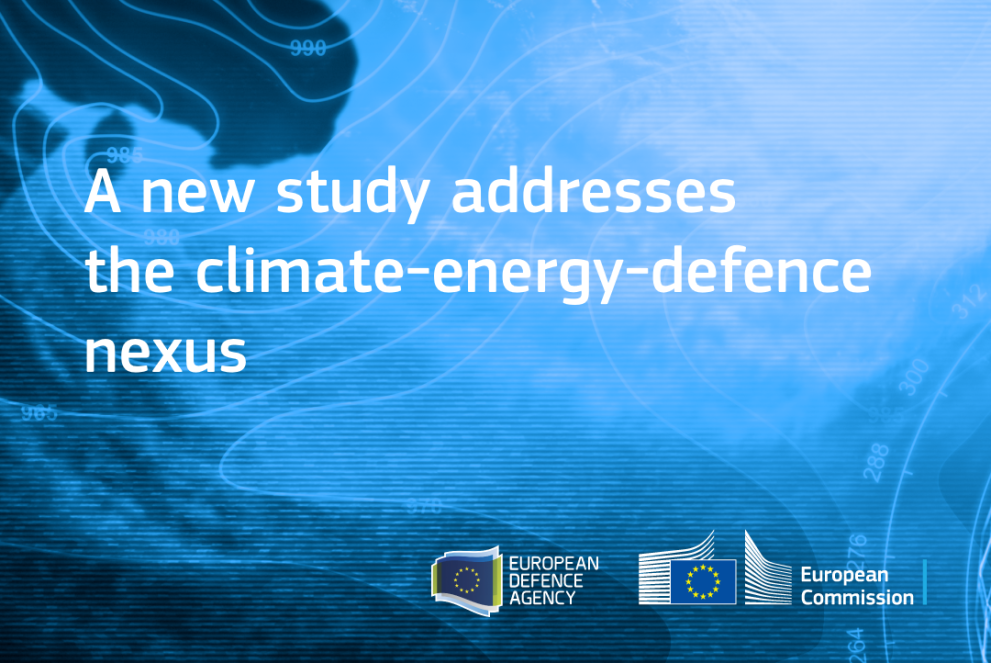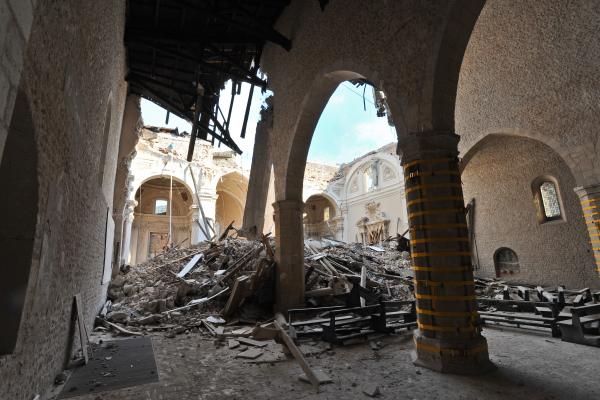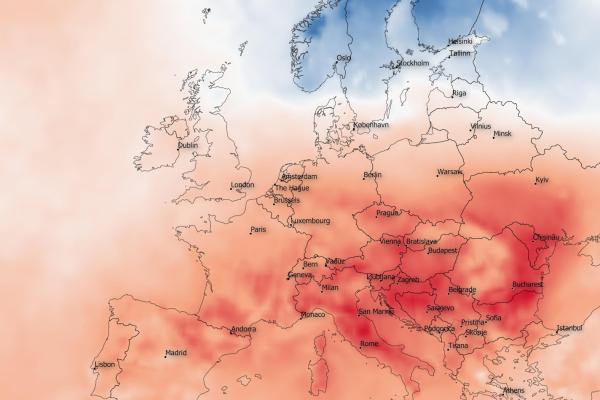
The defence sector is critical for maintaining the safety and stability of our society. However, the sector is at risk from climate change either through direct impacts of climatic hazards or indirectly because of its dependence on vulnerable entities that operate critical energy infrastructure. The defence sector must therefore increase its resilience to climate change. A new study of the European Commission’s Joint Research Centre and the European Defence Agency addresses for the first time the climate-energy-defence nexus and proposes actions for EU defence to ensure climate resilience and energy sustainability.
Climate change affects all sectors of society, and the current trajectory of greenhouse gas emissions brings the world closer to dramatic impacts on ecosystems and human activities, posing an existential threat to humanity. This is not an entirely new phenomenon. Between 1980 and 2020, in the 32 countries of the European Economic Area, total economic losses due to weather and climate-related events ranged between 450 and 520 billion EUR. The production and distribution of energy is exposed to a range of climate hazards, from droughts affecting hydropower and cooling water for thermal power plants, to wildfire and storm damage to overhead cabling.
On the other hand, fossil fuels are still part of the energy mix and this sector too is threatened by climate change (40% of the world’s oil and gas reserves), with potential for severe health effects and environmental degradation. Furthermore, the expected damage to critical infrastructure in the EU, including the energy and transport sectors, may multiply over ten-fold by the end of the century. Climate change can also aggravate the global security situation, increasing the need for more humanitarian and military assistance. Failure to meet the goals of the Paris Climate Agreement will exacerbate adverse consequences, inevitably affecting our society, including critical sectors like defence.
Defence must increase its resilience to climate change
Defence assets, capabilities, and operations are also at risk from climate hazards, such as severe floods, storms, and high or low temperatures. Such impacts can damage or destroy military assets or render them unfit for purpose in certain operating conditions, result in health and safety risks for military personnel, or lead to higher costs for infrastructure inspection, maintenance, repair and overhaul. The impacts of climate change and environmental degradation on defence are expected to increase in the future.
At the same time, climate hazards can also affect civilian entities that operate critical energy infrastructure (CEI) providing the energy which the military rely on, for example, electricity for powering systems or fuel for transportation. If such CEI is affected by climate hazards, the services it provides may be disrupted, cascading to military installations and compromising operational effectiveness and readiness. There is therefore a strong link between operational effectiveness and energy resilience.
Greenhouse gas emissions in defence have to be reduced
The defence sector is a large consumer of fossil fuels and raw materials which is reflected in a big carbon footprint. While there is a need for the armed forces to become more resilient to the effects of climate change, their efforts in reducing greenhouse gas emissions are also crucial and can contribute to improve the autonomy and energy security of the armed forces through diversification, and decrease exposure via the reduction of the amount of energy provided through the supply chains. The defence sector has recognised the limitations of fossil fuels and is ramping up its efforts to implement more sustainable energy choices in agreement with the goals of the European Green Deal.
Climate-proofing EU defence
The defence sector lacks the capacities and capabilities to adapt autonomously to climate change. The new JRC-EDA study analyses the link between climate, energy and defence, and stresses how there is a lack of a systematic approach when it comes to addressing climate change in EU defence. The study pinpoints existing gaps while providing recommendations for EU Ministries of Defence and CEI operators on climate change mitigation and adaptation, including guidance for investing in sustainable energy measures. It also outlines how the EU can complement national efforts and promote a long-term perspective to address these challenges comprehensively and effectively. The study provides scientific evidence to support the development of national strategies to prepare the armed forces for climate change impacts, in line with the EU Strategic Compass for Security and Defence.
The recommendations aim to facilitate the climate proofing and greening of all aspects of defence and focus on the operational dimension, capability planning and development, governance, multi-stakeholder engagement, and research, development and innovation. Addressing the emerging and future requirements of EU defence in the face of climate change is an important stepping-stone in the wider efforts of the EU to achieve climate resilience and neutrality.
Background
This new JRC-EDA study on climate change impacts on defence-related critical energy infrastructure will be launched on 8 June 2023 at the High-level Joint Defence and Energy meeting of the Consultation Forum for Sustainable Energy in the Defence and Security Sector (CF SEDSS). The meeting will take place in Stockholm under the auspices of the Swedish Presidency and it is hosted by the Swedish Ministry of Defence.
The third phase of CF SEDSS was launched on 1 October 2019. The project is funded by the EU Horizon 2020 research and innovation programme and will run until 30 September 2024. In its third phase, the Consultation Forum represents the largest European defence energy community, providing a unique platform for ministries of defence and other relevant stakeholders to share knowledge and promote collaborative defence research and technology innovation in the field of sustainable energy.
Past events have shown the vulnerability of the defence sector to the impacts of weather-related natural hazards. Climate change will increase the risk of adverse consequences. There is therefore a clear need to enhance climate-proofing and the greening of the defence sector, raise awareness, develop competencies, capacities and capabilities in this field, while at the same time increasing the operational effectiveness of the armed forces.
Several pieces of legislation acknowledge the need to consider climate change in the overall EU security context. The Climate Change and Defence Roadmap constitutes an integral part of the EU’s overall effort to address climate change under the European Green Deal. It was developed by the European External Action Service in close cooperation with the European Commission and the European Defence Agency. The forthcoming Joint Communication on addressing the impact of climate change, environmental degradation, security and defence to be adopted in June 2023 will take work further in this regard.
The Strategic Compass for Security and Defence calls for the full implementation of the Roadmap, recognising climate change as a threat multiplier that affects the EU’s long-term security. It also invites Member States to share national plans on how to contribute to the objectives of the Roadmap.
The European Green Deal’s overarching goal is to make the European Union climate neutral by 2050 and resource efficient.
The Critical Entities Resilience Directive will strengthen the resilience of critical infrastructure to a range of threats, including natural hazards. Energy is one of the 11 critical sectors that are covered.
Details
- Publication date
- 8 June 2023
- Author
- Joint Research Centre




